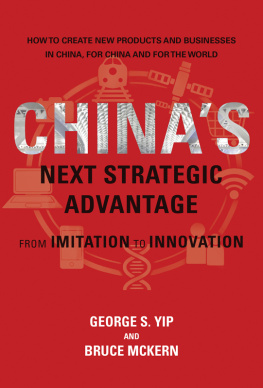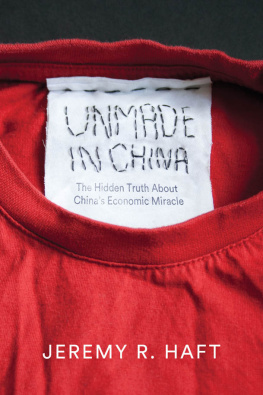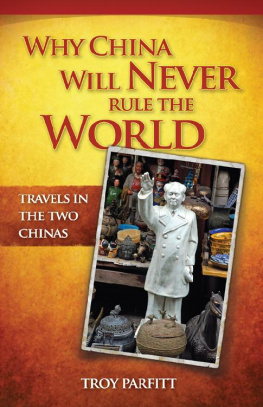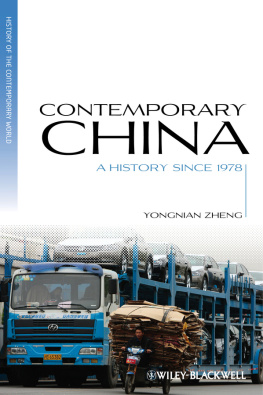Contents
Guide
THE
CHINA
DREAM
THE
CHINA
DREAM
How the Aspirations of Government,
Business, and People are Driving the
Greatest Transformation in History
JONATHAN A. KRANE
Matt Holt Books
An Imprint of BenBella Books, Inc.
Dallas, TX
This book is designed to provide accurate and authoritative information about economics. Neither the author nor the publisher is engaged in rendering legal, accounting, or other professional services by publishing this book. If any such assistance is required, the services of a qualified financial professional should be sought. The author and publisher will not be responsible for any liability, loss, or risk incurred as a result of the use and application of any information contained in this book.
The China Dream copyright 2022 by Jonathan A. Krane
All rights reserved. No part of this book may be used or reproduced in any manner whatsoever without written permission of the publisher, except in the case of brief quotations embodied in critical articles or reviews.
BenBella Books, Inc.
10440 N. Central Expressway
Suite 800
Dallas, TX 75231
benbellabooks.com
Send feedback to
BenBella and Matt Holt are federally registered trademarks.
First E-Book Edition: May 2022
Library of Congress Control Number: 2021049865
ISBN 9781637741016
eISBN 9781637741023
Editing by Camille Cline
Copyediting by Michael Fedison
Proofreading by Sarah Vostok and Jenny Bridges
Indexing by WordCo
Text design and composition by PerfecType
Cover design by Brigid Pearson
Cover image Shutterstock / hallojulie
Special discounts for bulk sales are available. Please contact .
I want to thank the KraneShares family, who as a
team has built an incredible company.
To all my friends in China, I am very grateful to you.
And to my family, thank you for your love and support.
G rowing up in Boston, I was fascinated by a place called China, which always seemed so far away. I made it to mainland China as a business student in 1998, and what I saw absolutely amazed me.
China in 1998 was worlds away from where it is today. Back then, many people traveled by bike and moped. Electricity was not available everywhere. Cities were a crowded mass of old, congested streets, temples, shantytowns, and factories. Through all of that, I saw potential. Everyone I interacted with was industrious and ambitious. Despite incredible struggles including, but certainly not limited to, the Cultural Revolution, the one-child policy, and low incomes in most of the country, I nonetheless sensed a great deal of optimism among Chinas people, at least those whom I was fortunate enough to meet. I saw an incredible, untapped entrepreneurial spirit.
After that trip, I would not return until 2003. I was eager to see what opportunities I could find. As a young entrepreneur, I figured that market research into China would be complicated, but that the potential was unmatched. Size, capital, and drive were the three key words that always came up whenever I was discussing the opportunities in China with potential investors and partners. I saw 1.3 billion people, a massive consumer market, and, most importantly, an intense drive to catch up with the developed world.
Today we talk of Chinas tremendous high-tech output and contributions to aspirational technologies such as artificial intelligence, but when I first arrived, those segments of the economy were virtually nonexistent. China had not yet developed the infrastructure or intellectual capital necessary to make advances in those sectors. At the time, most, if not all, of the countrys economic and political weight was put behind manufacturing for export. Nonetheless, I could sense dynamic opportunities afoot. Despite the naysayers, especially those who warned me not to uproot my life and move to China when the country was in the middle of a viral epidemic, SARS, I was determined to move forward on China opportunities.
When I arrived in Beijing, I was truly starting at zero. Other than a few people that I had met on my previous trip, I had no leads on business opportunities, much less potential corporate and government relationships.
By some stroke of chance, I found myself sitting in the office of Poly Group, a state-owned megafirm responsible for, among other things, directing funding for entertainment and culture throughout the country. Poly Group was a behemoth of a company. The group of companies was involved in so many different businesses that I could hardly tell which was the focus of management. Though, if I had to guess, it was defense manufacturing. Poly Group handled the manufacturing of most of the equipment used by Chinas military and still does a great deal of that today. A particularly intimidating sector, I know, but I was not deterred by that in the slightest. Fortunately, the group was expanding to include soft businesses, like arts and entertainment, and I decided I wanted to be part of that initiative.
Poly Group was eventually quite successful at expanding into industries other than defense manufacturing. Today, they are a major player in the fine art business in China and Asia, operating a great deal of auctions in the Asian art market. Today, if you go to Polys Beijing headquarters, you can buy a painting on one floor and a missile system on another.
While working with state-owned enterprises (or SOEs) might seem taboo to the typical American businessperson, these firms actually work synergistically with entrepreneurs. SOEs generally want to do business in a conservative manner and minimize risk. Paradoxically, this characteristic makes them the perfect match for a bold entrepreneur. I offered to take a lot of the up-front risk, and, in turn, receive a bigger share of the revenue.
I saw an opportunity in the entertainment and media space, though I could have found opportunity anywhere during this period of dramatic change, not only in the way China operated internally but also the way China dealt with the rest of the world.
Over the six years leading up to the 2008 Olympics, the government decided that it needed to open up the country to live international content, sort of a massive rehearsal before the games. Everything was needed to pull this off, from infrastructure such as concert halls to domestic marketing capacity to access to networks of foreign talent. State-owned enterprises like Poly Group would be called on to lead the charge, but they would also need foreign companies and entrepreneurs to help. Artists such as Beyonc and the Rolling Stones already had millions of fans in China, but few fans had ever seen these performers live. David Copperfield, the Las Vegas magician, was one of the only major international acts Chinese fans had seen within the country at that time. There was clearly an intense need for more entertainment events with performers from abroad.
In 2004, I founded Emma Entertainment, an international entertainment, promotions, and ticketing company. After countless trips, meetings, fundraising activities, odd tasks, and grunt work, way too numerous to recount here, we had our first concert in Beijing featuring Whitney Houston in July 2004. It was a symbolic and surreal occurrence to have Whitney Houston come to China for the first time. The look on the faces of 25,000 people who attended the concert in Beijing gave me the impression that my team and I had helped make their dreams come true. I saw people crying at our first concert and was incredibly moved. That experience inspired me to keep moving along with this grand vision. Eventually, we hosted numerous other acts, with the Rolling Stones, Beyonc, Eric Clapton, Celine Dion, Linkin Park, and the Backstreet Boys among our most popular headliners.

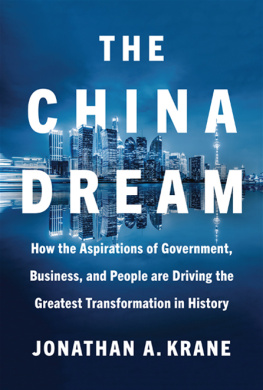

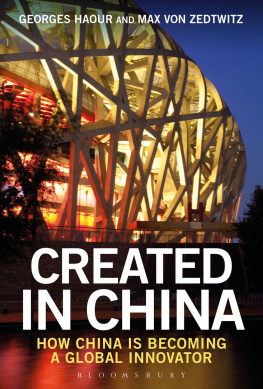
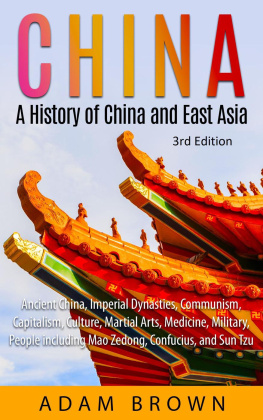
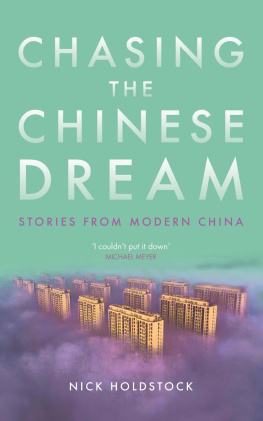
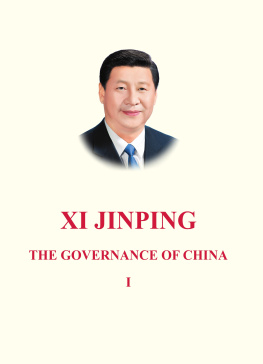
![Flower - China: [the essential guide to customs & culture]](/uploads/posts/book/200771/thumbs/flower-china-the-essential-guide-to-customs.jpg)
